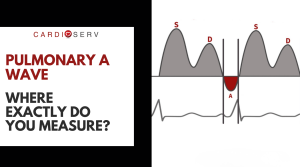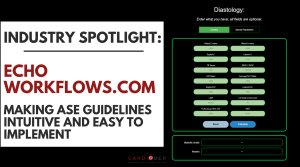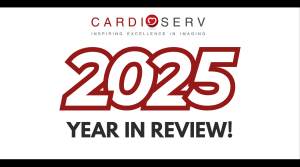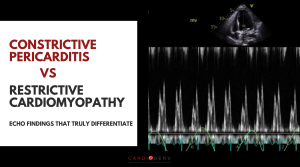Last Updated on November 18, 2025 by Don Gerig, RDCS
Introduction
IAC Accreditation in echocardiography and vascular ultrasound can be overwhelming, especially for busy labs juggling compliance, documentation, and daily clinical work. But what if two simple shifts in strategy could save your team time, reduce stress, and improve the quality of your submission?
In our recent webinar, we shared two proven strategies to simplify accreditation. These strategies have helped hundreds of facilities across the country accelerate their Intersocietal Accreditation Commission (IAC) accreditation services without compromising quality. These insights are based on nearly two decades of experience supporting echo and vascular labs through successful IAC submissions.
Register here to watch webinars on demand

Strategy #1: Case Studies Drive the IAC AccreditationTimeline
One of the most common misconceptions we see is teams waiting until they’ve finished everything else before collecting their case studies. In reality, case studies are the driving force behind your entire IAC accreditation timeline.
Why?
Because you cannot submit your IAC application without them. The portal simply won’t let you. Even though other components—like CME credits, policies, or QI measures—can be marked as incomplete with explanations or placeholders, the absence of case studies halts submission entirely.
That’s why the #1 actionable step for any team preparing for accreditation is to:

A compliant protocol ensures that every scan performed from that point forward is accreditation-ready. This increases the number of eligible case studies you have to choose from and allows you to represent all interpreting physicians and sonographers without duplication—a key IAC requirement.
Don’t wait until the last minute and hope that your best studies aren’t all tied to the same provider. Start early. Standardize. Build your case study library proactively.
Strategy #2: Delayed Status Is Not a Failure
Many facilities delay submission, aiming for perfection. But here’s the reality:

You do not need to wait for perfection. Quite the contrary, during the webinar we discuss in detail how to submit an IAC accreditation application even if missing certain items like finalized policies or qualtiy improvment measures that are not yet compliant. You will not fail, rather you will receive a Delayed Status, which gives you additional time to submit what is missing.

Here’s how to use a Delayed Status effectively:
- Submit your application with complant case studies and a clear plan for what’s still outstanding.
- Use the 60–90 day review period to complete tasks like obtaining CME documentation or finalizing policies.
- Avoid relying on delayed status for clinical components, like case studies, which require more time to correct due to patient availability and pathology.

What This Looks Like in Practice
Imagine two facilities:
- Facility A waits until everything is perfect, delays submission by months, and scrambles to pull together compliant case studies.
- Facility B starts by finalizing their scanning protocol, submits early, and uses the review window to address any outstanding clerical items.
Facility B gets accredited faster, with less stress, and with a clearer roadmap.
Conclusion: Put These Strategies Into Action
If your team is preparing for IAC accreditation or re-accreditation, remember these two core strategies:
- Case studies drive accreditation – Finalize your scanning protocol first.
- Delayed status is not a failure – Use it strategically for clerical gaps, not clinical ones.
These two shifts can dramatically reduce your timeline, improve submission quality, and give your team the confidence to move forward.
Need help applying these strategies to your facility?
How CardioServ Supports Echo and Vascular Labs
At CardioServ, we specialize in helping echo and vascular labs successfully complete the Intersocietal Accreditation Commission (IAC) accreditation process. Our services include full service accreditation where we handle everything for you from start to finish, including: protocol development, case study review, application guidance, and team education tailored to your modality. We’ve worked with hospitals, outpatient centers, and private practices across the country to streamline the accreditation journ

Schedule Free Consultation
Schedule your free consultation to discuss your specific needs.
Related articles:






